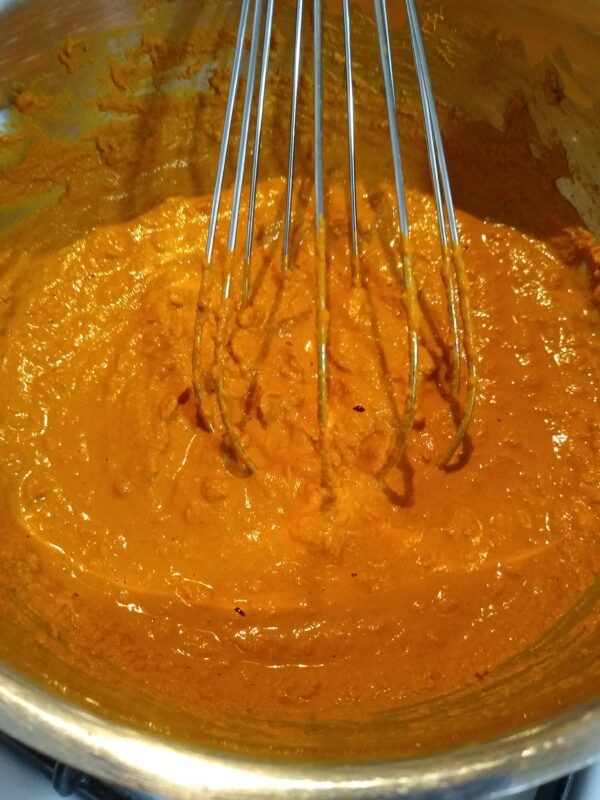Google Adsense—>
Turmeric for Dogs

Like you, I’ve heard that turmeric for dogs can help reduce inflammation, is an antioxidant, offers antimicrobial properties and is great to boost a dog’s immune system. Truth be told, I’ve also used both organic turmeric powder and a golden paste in Dexter’s care. On a rotational basis, of course.
At Dexter’s last rehabilitation exam with his holistic veterinarian, she suggested I incorporate turmeric on a more regular basis. I thought this would be a good time to talk with a few leading veterinarians regarding the pros and cons of turmeric for pets, its dosage, and the best way to give turmeric to dogs. Hint: Dexter’s boosted golden paste recipe is at the end of this post.
Turmeric for Dog’s Health Benefits
I talked with Dr. Paola Cuevas, a veterinarian and behaviorist with Hepper. She offered this insight about the health benefits of turmeric for dogs.
“Turmeric or Curcuma longa is a root related to ginger. Used for centuries in ayurvedic and Chinese medicine, turmeric is highly valued due to its antioxidant and anti-inflammatory properties. The active ingredient in turmeric is called curcumin.”
Dr. Cuevas went on to explain, “In pets, turmeric has proven a valuable natural treatment for several health issues, of great importance in the treatment of arthritis. Turmeric inhibits COX-2 enzymes preventing the pain, inflammation, and swelling that is normally resulting from these enzymes’ activity. Other benefits of turmeric include the support of a healthy gastrointestinal tract.”
She continued by saying, “Turmeric or curcumin has also been shown valuable in the prevention and treatment of certain cancers.”
Side Effects of Turmeric on Dogs
With the good, always comes the risks. I spoke with Dr. Dilber Hussain, a veterinarian at The Malamute Mom. He gave me a few things to consider before diving into the turmeric bandwagon. “As with any supplement or medication, there are potential risks associated with giving turmeric to your pet. In some instances, turmeric can act as a blood thinner and cause gastrointestinal upset in dogs.”
I always suggest speaking with your pet’s holistic veterinarian prior to adding a new supplement or herb. Dr. Hussain agreed, stating, “It is important to consult with your veterinarian to determine the proper dosage of turmeric for your pet, as well as to rule out any potential allergic reactions. Additionally, it is very important to monitor your pup’s health and behavior when giving them any supplement or medication. Though turmeric can offer numerous benefits for our canine friends, it is always best to consult a professional before introducing any new health regimen.”
Don’t forget to subscribe to our YouTube channel for more free content.
Black Pepper, and Fat Turmeric for Dogs
Dr. Cuevas explains that, “When giving turmeric as a treatment to pets, it is important to source an organic and chemical-free product. Turmeric that is highly bioavailable and complete meaning it contains the 3 isomers or active curcuminoids: curcumin, demethoxy curcumin, and bisdemethoxy curcumin.”
Various research studies, it has shown that turmeric is better absorbed and activated with the addition of pepper. This is because piperine, the active ingredient of pepper enhances the absorption of curcumin. Studies have also shown that you can further increase curcumin’s bioavailability even more by adding it with a healthy fat such as coconut oil or fish.

Manuka Honey Health Benefits for Dogs
Personally, I love adding Manuka honey to my coffee, tea, and even bread. I find the flavor rich, and similar to caramel. Sort of. 😉 But, what are the health benefits of Manuka honey for dogs?
Dr. Michelle Burch, a veterinarian from Safe Hounds Pet Insurance said, “Potential benefits of Manuka honey for dogs include decreased inflammation of the intestinal system and decreased skin inflammation due to atopy dermatitis (contact skin allergies) when given orally.”
Manuka honey is a natural prebiotic, which supports a dog’s gut health. Manuka honey boosts the immune system and even helps fight gum disease. As a bonus, it’s sweet nature. Dogs typically love it!
Understanding Manuka Honey Grades
When looking to purchase the best manuka honey for dogs, I was blown away by the wide variety of prices. And what do all those letters mean on the front of the jar? I asked Dr. Burch for her insight. She offered this explanation.
“Unique manuka factor (UMF) measures the antibiotic effect compared to phenol (a disinfectant). MGO is the measured amount of methylglyoxal, the ingredient in manuka honey responsible for its antibacterial effect. The UMF is determined by having the honey tested by certified and approved labs by the UMF Honey Association. MGO levels can also be tested at accredited labs, but products can also obtain their MGO content from labs that are not certified.”
She continued to note, “UMF labeling indicates that the product is well controlled, while products with the MGO content can be good but do need research into the laboratory in which they were tested. UMF values will range from 5+ to 28+. Ratings of 10+ are considered to be therapeutically valuable. The higher the rating, the higher the amount of MGO present in the honey. A UMF 5+ has a minimum of MGO 83, while UMF 20+ has a minimum of MGO 829.”
Is Manuka Honey Safe for Dogs?
As with anything, speaking to your dog’s holistic veterinarian prior to use is my first recommendation. Typically, honey should not be given to dogs under a year of age. Also, diabetic dogs or dogs that are allergic to bees should avoid honey, unless directed by their veterinarian.

| Prep Time | 5 minutes |
| Cook Time | 10 minutes |
| Servings |
|
Ingredients
|

|
- Place the ground turmeric, black pepper, manuka honey, coconut oil, and water in a small saucepan over medium-low heat.

- Whisk to combine and cook until it forms a paste and the coconut oil and honey are fully melted.

- Transfer the golden paste into silicone molds.

- Place molds into the freezer. Once frozen, pop out the cubes and store them in a plastic bag inside the freezer.
- Thaw before serving.
Your questions or comments are welcome below.
Are you looking for even more ways to stay up to date with Raising Your Pets Naturally? Sign up for the newsletter for more tips and promotions. Don’t forget to be social and Like, Follow and Subscribe. Comments below are always welcome.
Facebook Twitter Pinterest Instagram YouTube
|
|
Google Adsense--->
(adsbygoogle = window.adsbygoogle || []).push({});







Hi, just wondering how many of these “treats” should be given per day?
I recommend after speaking with your dog’s vet to ensure it’s a good add-in, they may be able to help with dosage. Start at 1/2 dose and build. I don’t recommend giving every day. I usually give Dex a few days on, then off. Small dogs should start with about 1/4 teaspoon per day, medium dogs with 1/2 teaspoon, large dogs with 3/4 teaspoon, and giant dogs with 1 teaspoon per day.